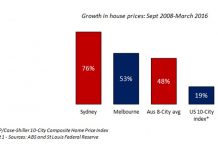So, why are things looking so rosy for the Emerging Markets and developing countries? Two very important factors are population growth and productivity.
The rise in productivity is a natural progression and not exactly difficult to achieve. To begin with the old, developed, countries are exporting their expertise to the Emerging Market ones so they can make better profit margins. However, the knowledge does not stay within but gets out. People then improve what has been brought into the country and then send it back to the Old World and/or keep it for themselves so as to improve the local community. The perfect example of this is broadband. This was brought to South Korea by America but the latter now has a broadband speed which is less than ten percent of that of the former.
Another important factor is the fact that the Emerging Markets are finding themselves at the start of the larger economic development cycle. This means there are many investment opportunities for capital to be allocated against thus resulting in the opportunity for these countries to manage quick economic growth and, thereby, development. This then leads to the continuous loop as quoted by Miton, “Investment spending creates employment which in turn boosts income growth and subsequently consumption. This then further stimulates investment spending, and so on. It is only once the number of easily exploitable investment opportunities starts to diminish, that economies slow and move on to the growth paths typically experienced by the mature economies of today’s world.”
Despite the last bit, Emerging Markets still have a lot going for them:
* EM debt ratios and fiscal deficits are less than half the level of those in developed countries.
* Average debt to GDP for EM economies stands at only 33% compared to 104% of GDP for DM in 2013.
* Since early 2008 DM have experienced 25 sovereign downgrades, compared with 21 upgrades in emerging markets in 2010.
* Growing differential in favour of emerging markets – 5.8% for emerging markets vs advanced economies potential growth of 1.6%.
* “We can rely on stimulating domestic demand to stabilise and further grow the Chinese economy,” Premier Wen Jiabao, Bloomberg, 4 October, 2010.
Nonetheless, anyone who invests in Emerging Markets must not lie back too much as there are risks which are not so apparent as they are in the Old Developed World. For a start, it is a lot harder for an investor who is not familiar with these markets to find a company that they will feel comfortable with. This is because the economies of these countries are comparatively immature when compared to those of the developed world and so the natural course of who survives and who is killed off has not yet been completed. There is also the issue of transparency and good governance. This is taken for granted in economies which are fully developed but it cannot be taken do in those of the Emerging Markets.
Despite the potential pitfalls, however, there is good money to be made from the Emerging Markets and the risk/reward ratio looks quite good. Without doubt, there will be volatility but the trend will be upward. Any short term hiccups are only for day traders to worry about. People who are in it for the long term should not lose any sleep over it. The continued low interest rates in the West will continue to encourage more money towards the Emerging Markets and until this changes and volatility hits unacceptable levels then the New World Order should definitely be part of your portfolio.
The above data and research was compiled from sources believed to be reliable. However, neither MBMG International Ltd nor its officers can accept any liability for any errors or omissions in the above article nor bear any responsibility for any losses achieved as a result of any actions taken or not taken as a consequence of reading the above article. For more information please contact Graham Macdonald on [email protected]




